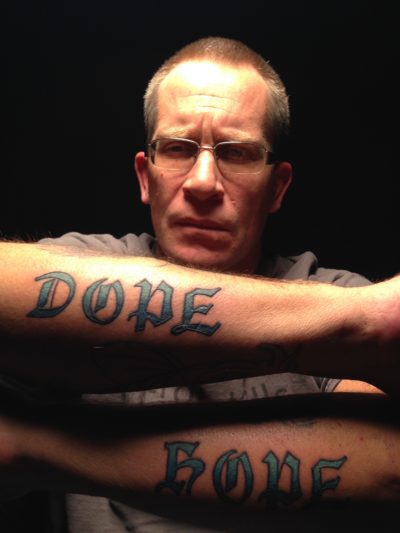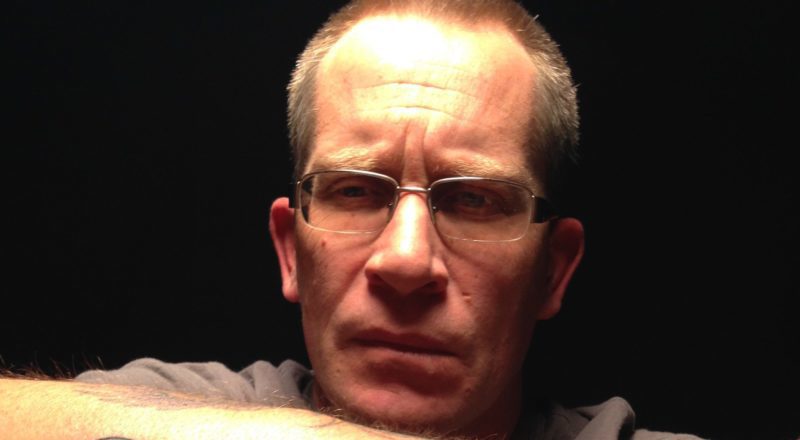INTERVIEW: A&E’s ‘Dope Man’ follows Tim Ryan on his quest to help struggling families

Dope Man, a new special from A&E, follows Tim Ryan and his journey from substance abuse to helping families struggling with opiate addiction. His personal story is devastating: After becoming addicted to heroin, Ryan spent time in prison and saw his former life leave him forever. His wife divorced him. His house was foreclosed on, and, after he was released from prison, his 20-year-old son tragically died from a heroin overdose.
Ryan has been open with his story, mostly because he wants to help other addicts and their families. He is determined to find them long-term help and good health, and his mission will be the subject of A&E’s Dope Man, premiering on the network Monday, July 31 at 10 p.m.
“A lot of people I think have a misconception of what’s really going on out there, and what we’re really showing is what’s really going on, the crisis that people or families are in,” Ryan said in a recent phone interview. “I mean, a lot of people that get caught up in the opiate world or even addiction in general just don’t know there’s any help out there, and in different ways or scenarios, I’m the guy coming in and basically giving them hope. I’m a guy that opens the door, gives them a little bit of light, so hopefully we can get them on the right road to recovery, however that looks for them. But it’s very intense. It’s real, and I think it’s going to really open people’s eyes to what’s really going on out there.”
When Ryan intervenes with a family, often it’s at the last minute. He said sometimes the addict is days or even hours from death. That makes his role extremely difficult and crucial.
“I’m the cleaner,” he said. “I’m the guy that comes in and cleans up the messes. … A lot of parents, or husbands or wives think they can help things through emotions, or hold on they got better for three days. And in the back of their mind, they think, OK, things are going to be good, and then the shoe drops again. So, yeah, when I’m getting called in, it’s in dire, desperate situations.”
When Ryan talks about opiates, he not only speaks from a personal standpoint, but he’s also knowledgable about the root causes of addiction. He understands the pathway that leads a person to leave a seemingly perfect life and head down a foreboding path.
“I’ve got 30 years of experience struggling with substance abuse, but then I’m the guy that got sober in the depths of hell in the Illinois Department of Corrections,” he said. “I use a lot of my background from being a recruiter. I’ve interviewed 10,000 people, so I’ve taken a lot of that and applied it to what I do today. And very quickly I make a connection with the person because I can say, ‘Hey, look, I’ve been there. I’ve overdosed eight times. I’ve been clinically dead three. I’ve been to prison twice. I was successful. I was hopeless.’ And I instantly have their attention. Then I start just listening for similarities and start sharing and sharing until they say, ‘You know what, you’re right. I need some help.’ And then I go immediately with them to get them the help needed.”
Before Ryan would intervene with a family for Dope Man, he would go into the home and request permission. He would tell them he had a documentary film crew out front and whether that would pose a problem. Surprisingly, many families were OK with the cameras because, as Ryan put it, they wanted the stigma dropped.
“They want to know that you know that we’re a lower middle-class family, or we’re an upper middle-class family, or our kids were raised well, they went to good schools,” he said. “I just did a Sober Festival yesterday, and I had five families show up there whose children had passed away. And they’re all still here supporting what we’re doing and trying to become part of the solution today. It’s kind of amazing how this goes, but most people are totally open and want to talk about this.”
Ryan’s own path to sobriety began in prison. He was sentenced in Illinois and entered a prison that had a drug treatment program. He was lucky that worked out because that doesn’t mean everyone who goes to prison will get clean.
“The analogy I use is if you take a cancer patient, and put them in prison for two years and release them, do you expect them to be cured of cancer?” he asked. “Absolutely not. So if you take someone struggling with substance abuse or the disease of addiction, lock them up and release them, do you think they’re going to be cured? No, they need the resources, and I had had enough. And when I walked into prison, I was probably the happiest person to walk in because I knew the game was up, but it was going to give me a year or year and a half, however long I was going to do, to actually work on myself. But I chose to study the Big Book of Alcoholics Anonymous, the [Narcotics Anonymous’] Basic Text. I read hundreds of books. My cellmate and I went through recovery in our cell, in the dayroom, but I chose to do that. A lot of people don’t, but sometimes some people need to be sat down and have a little time out.”
Today Ryan speaks to school groups, corporations and others about the devastation of addiction. He is also a sober coach and an outreach director for a drug and alcohol treatment center. Ryan is continually focusing on the help he can uniquely provide.
“I had to have everything taken away from me,” he said. “My wife divorced me. We lost our house in foreclosure. My kids coming to visit me. I will never forget the pain I put my family through, and that’s one of the driving factors today on why I do what I do.”
By John Soltes / Publisher / John@HollywoodSoapbox.com
Dope Man will premiere Monday, July 31 at 10 p.m. on A&E. Click here for more information.

